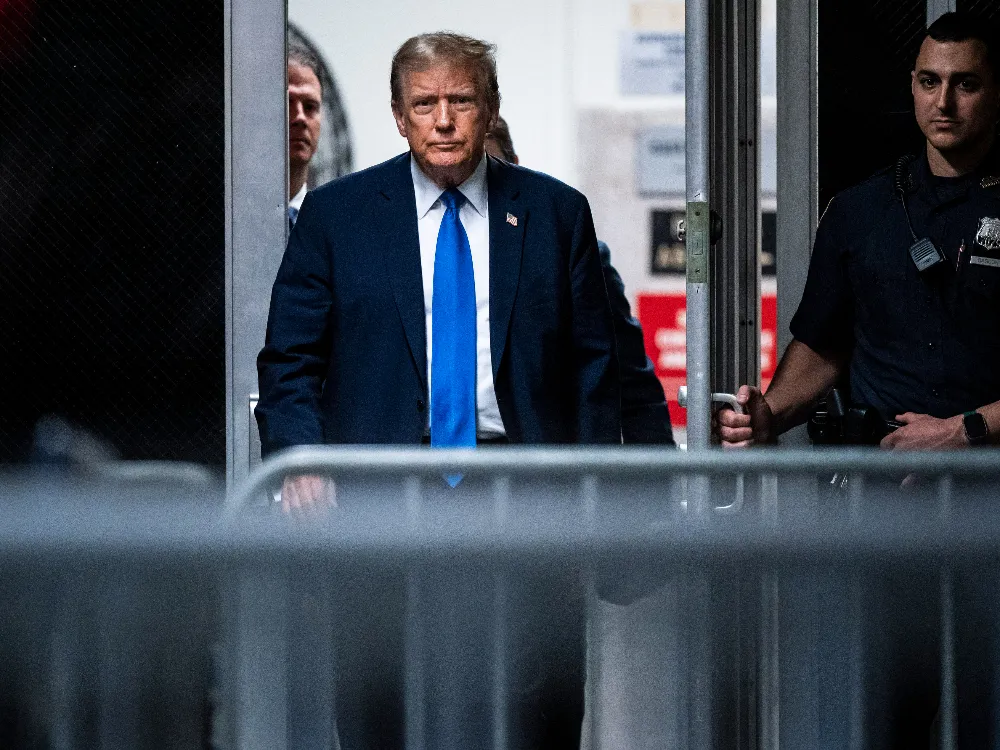Trump's trial reveals the sorry state of America's justice system
National Post, 19 April 2024
As the acquittals in the Rodney King and O.J. Simpson cases showed, the remedy for bad justice is not more bad justice
As Donald Trump’s criminal trial opened this week in Manhattan, there are those who still marvel that his various prosecutions appear to have made him more popular, not less, at least amongst his most devoted followers. Such observers forget that for Americans, in a contest between the People v. Anyone, the safer option is to side with Anyone, given how politicized and corrupt the American criminal justice system is — and has been for a very long time.
It’s a “communist show trial,” lamented Trump about his hush-money trial in New York. Trump is wrong. Abuse of power, political considerations and prosecutorial misconduct are as American as hamburgers and French fries. Prosecutorial interference in elections may sound foreign, but it is entirely homegrown from sea to shining sea.
Including the Bering Sea. Remember that as recently as 2008 the federal department of justice took out Alaska’s Ted Stevens, the most senior member of the U.S. Senate on charges of filing false records. Sound familiar? The justice department concealed exculpatory evidence. A federal judge would later call it “the worst example of prosecutorial misconduct I have ever seen.” And that was a Republican administration trumping up false charges against a Republican senator. Corruption of criminal justice is a thoroughly bipartisan affair.
The O.J. Simpson trial — being discussed again on the occasion of his recent death — was a key moment in bringing the sorry state of American justice to wider knowledge. The interest was immense. I watched the slow-speed chase in June 1994 on a sidewalk with dozens of others on a bank of televisions through an electronics store window, all channels carrying the same footage. I was on plane when the verdict was announced in October 1995; the pilot came over the intercom to advise all of us of the acquittal.
It was a shock that a jury could acquit an apparently guilty Black man because of the claim that racist cops had set him up. For white America, that was a common reaction. But Black America was accustomed for a very long time to apparently guilty white men acquitted of killing Blacks. For how many generations had whites been acquitted of such beatings, even lynchings?
One juror would eventually say that the acquittal of O.J. was “payback” for Rodney King. The trial of the white police officers who beat King had been moved to a different county, the better to get a friendly jury to acquit them. They did and Los Angeles burned. The O.J. verdict was payback for a lot more than Rodney King, and for a lot longer.
O.J.’s trial taught broader lessons. Prosecutors and police work in a government bureaucracy, just like the postal service or procurement. A high level of competence is not to be expected. They do have enormous power though, and power unhappily tends to corrupt. They reflect the prejudices and political imperatives of broader society.
O.J. was found guilty of wrongful death in a later civil proceeding; damages of US$33 million were awarded to the family of Ron Goldman. Different charges, different jury, different result.
Later still, O.J. attempted, by force of arms, to “recover” some of his memorabilia in Las Vegas. He was convicted in Nevada of armed robbery, which is what he did, and, curiously, kidnapping, which he did not do in the way that ordinary people use that word. But it was payback time for O.J. and the prosecutors and judge inflated the charges against him, an absolutely routine part of American criminal justice. That led to a sentence of 33 years, which the judge apparently considered a cute symmetry with the civil damage award. That’s how American justice works, and O.J.’s celebrity taught that lesson to an entire country.
Johnnie Cochran’s refrain from the L.A. courtroom still echoes: “If it doesn’t fit, you must acquit.”
Continue reading at the National Post.
